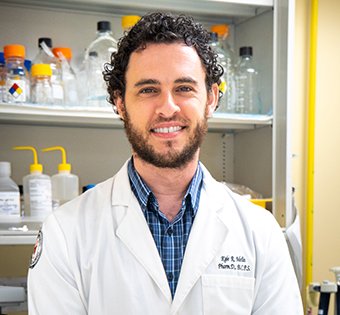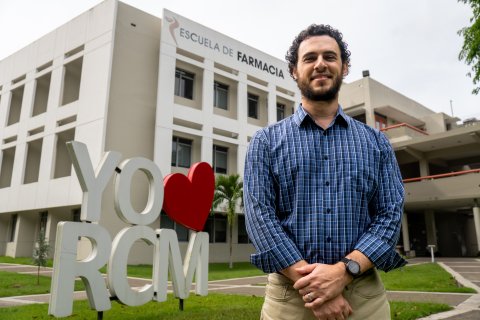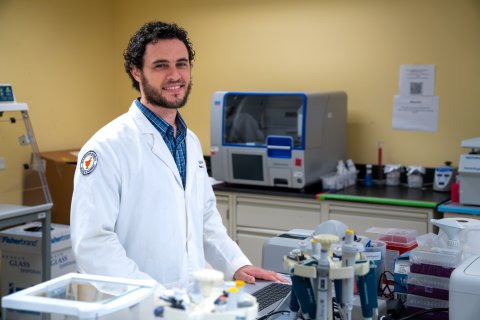
Kyle Melin, PharmD ’09, is both a scientist and an advocate.
Since graduating from Ohio Northern University’s Raabe College of Pharmacy, he has worked to shift the culture of biomedical research and healthcare, championing the inclusion of historically marginalized populations in both fields.
An associate professor at the University of Puerto Rico and senior policy and research fellow at the National Alliance for Hispanic Health, Kyle has authored 48 publications addressing healthcare disparities.
He believes inclusive research and policy lead to better health outcomes.
“I’m a researcher and a practicing clinical pharmacist. I want to bring the benefits of research to the communities I serve. That’s my priority.”
In February of 2022, the Journal for American Pharmacists Association (JAPha) awarded Kyle the Wiederholt Prize for Best Published Paper for Economic, Social and Administrative Sciences. His award-winning study focused on pharmaceutical care for the transgender population in Puerto Rico.
Based on the study’s findings, Kyle and his team developed continuing education opportunities for pharmacists—all of which were well-attended. “We trained more than 300 pharmacists at the Puerto Rican annual meeting of the Community Pharmacy Association,” he said.
And so began the transformation of pharmacists from being knowledge deficient to having what they needed to provide up-to-date and more effective care.
The Latinx population is another focus of Kyle’s work.
“We did studies on Warfarin among the Puerto Rican population to come up with best dosing for Latinx people, who are, generally, very genetically diverse,” he said.
For a long time, Plavix, which is used after a heart attack, was standard of care, explained Kyle. But a third of the population can have a genetic mutation that makes it not work well. “So, we did a study that looked at a variety of genetic markers and designed testing to guide treatment,” he said.
Most important to him is that the findings lead to better care.
In 2006, for example, 96% of the genome-wide association studies conducted globally were on white, Northern European U.S. citizens.
“This leads to real problems,” Kyle explained. “What we learn from our genetics is shaped by the genetics we look at, and looking at just a small part of the overall profile of humanity means we miss things.”
He cites a breakthrough in cholesterol medication development that emerged only after African Americans were included in a genetic study.
“We wouldn’t have discovered that gene otherwise,” he said. “And yet those of African ancestry make up less than 5% of genetic studies ever done. Everybody misses out when we have a nondiverse biomedical research system.”
As part of his work with the National Alliance for Hispanic Health, Kyle spends one week a month in Washington, D.C., where he leads public policy and advocacy projects and collaborates with federal agencies to make biomedical research more inclusive and accessible.
Scientific mentorship is very important to him.
“When I publish a paper and present at a conference, it’s an opportunity for students to participate and to get recognition,” he said.
Kyle is grateful to ONU and emphasizes the importance of a well-rounded education.
“My non-pharmacy classes were very valuable. I’m a much better scientist because of the humanities classes; they helped develop critical thinking skills. And I learned a lot from students in engineering and other disciplines who were in the Honors program.”
He is most proud to have received ONU’s Charles Oren Lee Award during his campus days. “It’s a humanities award for a pharmacy student. I appreciate that ONU sees and develops the whole person.”

